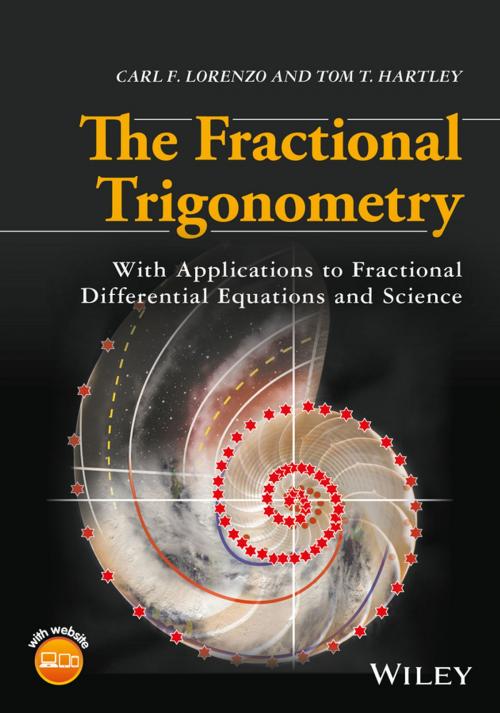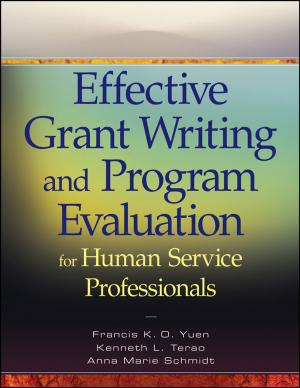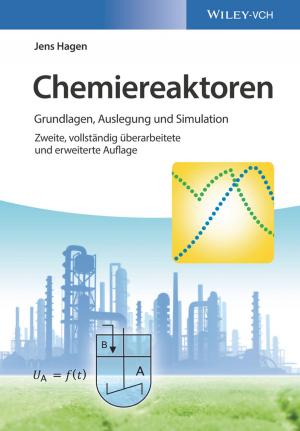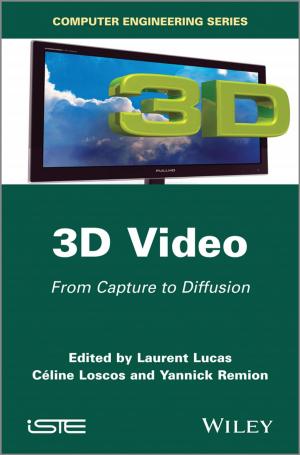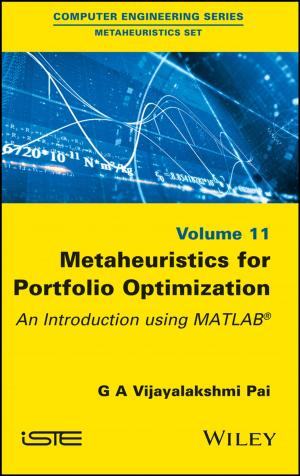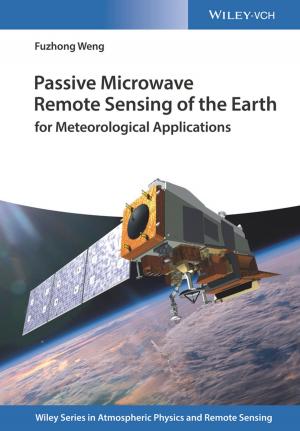The Fractional Trigonometry
With Applications to Fractional Differential Equations and Science
Nonfiction, Science & Nature, Mathematics, Applied| Author: | Carl F. Lorenzo, Tom T. Hartley | ISBN: | 9781119139430 |
| Publisher: | Wiley | Publication: | November 7, 2016 |
| Imprint: | Wiley | Language: | English |
| Author: | Carl F. Lorenzo, Tom T. Hartley |
| ISBN: | 9781119139430 |
| Publisher: | Wiley |
| Publication: | November 7, 2016 |
| Imprint: | Wiley |
| Language: | English |
Addresses the rapidly growing field of fractional calculus and provides simplified solutions for linear commensurate-order fractional differential equations
The Fractional Trigonometry: With Applications to Fractional Differential Equations and Science is the result of the authors’ work in fractional calculus, and more particularly, in functions for the solutions of fractional differential equations, which is fostered in the behavior of generalized exponential functions. The authors discuss how fractional trigonometry plays a role analogous to the classical trigonometry for the fractional calculus by providing solutions to linear fractional differential equations. The book begins with an introductory chapter that offers insight into the fundamentals of fractional calculus, and topical coverage is then organized in two main parts. Part One develops the definitions and theories of fractional exponentials and fractional trigonometry. Part Two provides insight into various areas of potential application within the sciences. The fractional exponential function via the fundamental fractional differential equation, the generalized exponential function, and R-function relationships are discussed in addition to the fractional hyperboletry, the R1-fractional trigonometry, the R2-fractional trigonometry, and the R3-trigonometric functions. The Fractional Trigonometry: With Applications to Fractional Differential Equations and Science also:
- Presents fractional trigonometry as a tool for scientists and engineers and discusses how to apply fractional-order methods to the current toolbox of mathematical modelers
- Employs a mathematically clear presentation in an e ort to make the topic broadly accessible
- Includes solutions to linear fractional differential equations and generously features graphical forms of functions to help readers visualize the presented concepts
- Provides effective and efficient methods to describe complex structures
The Fractional Trigonometry: With Applications to Fractional Differential Equations and Science is an ideal reference for academic researchers, research engineers, research scientists, mathematicians, physicists, biologists, and chemists who need to apply new fractional calculus methods to a variety of disciplines. The book is also appropriate as a textbook for graduate- and PhD-level courses in fractional calculus.
Carl F. Lorenzo is Distinguished Research Associate at the NASA Glenn Research Center in Cleveland, Ohio. His past positions include chief engineer of the Instrumentation and Controls Division and chief of the Advanced Controls Technology and Systems Dynamics branches at NASA. He is internationally recognized for his work in the development and application of the fractional calculus and fractional trigonometry.
Tom T. Hartley, PhD, is Emeritus Professor in the Department of Electrical and Computer Engineering at The University of Akron. Dr Hartley is a recognized expert in fractional-order systems, and together with Carl Lorenzo, has solved fundamental problems in the area including Riemann’s complementary-function initialization function problem. He received his PhD in Electrical Engineering from Vanderbilt University.
Addresses the rapidly growing field of fractional calculus and provides simplified solutions for linear commensurate-order fractional differential equations
The Fractional Trigonometry: With Applications to Fractional Differential Equations and Science is the result of the authors’ work in fractional calculus, and more particularly, in functions for the solutions of fractional differential equations, which is fostered in the behavior of generalized exponential functions. The authors discuss how fractional trigonometry plays a role analogous to the classical trigonometry for the fractional calculus by providing solutions to linear fractional differential equations. The book begins with an introductory chapter that offers insight into the fundamentals of fractional calculus, and topical coverage is then organized in two main parts. Part One develops the definitions and theories of fractional exponentials and fractional trigonometry. Part Two provides insight into various areas of potential application within the sciences. The fractional exponential function via the fundamental fractional differential equation, the generalized exponential function, and R-function relationships are discussed in addition to the fractional hyperboletry, the R1-fractional trigonometry, the R2-fractional trigonometry, and the R3-trigonometric functions. The Fractional Trigonometry: With Applications to Fractional Differential Equations and Science also:
- Presents fractional trigonometry as a tool for scientists and engineers and discusses how to apply fractional-order methods to the current toolbox of mathematical modelers
- Employs a mathematically clear presentation in an e ort to make the topic broadly accessible
- Includes solutions to linear fractional differential equations and generously features graphical forms of functions to help readers visualize the presented concepts
- Provides effective and efficient methods to describe complex structures
The Fractional Trigonometry: With Applications to Fractional Differential Equations and Science is an ideal reference for academic researchers, research engineers, research scientists, mathematicians, physicists, biologists, and chemists who need to apply new fractional calculus methods to a variety of disciplines. The book is also appropriate as a textbook for graduate- and PhD-level courses in fractional calculus.
Carl F. Lorenzo is Distinguished Research Associate at the NASA Glenn Research Center in Cleveland, Ohio. His past positions include chief engineer of the Instrumentation and Controls Division and chief of the Advanced Controls Technology and Systems Dynamics branches at NASA. He is internationally recognized for his work in the development and application of the fractional calculus and fractional trigonometry.
Tom T. Hartley, PhD, is Emeritus Professor in the Department of Electrical and Computer Engineering at The University of Akron. Dr Hartley is a recognized expert in fractional-order systems, and together with Carl Lorenzo, has solved fundamental problems in the area including Riemann’s complementary-function initialization function problem. He received his PhD in Electrical Engineering from Vanderbilt University.
